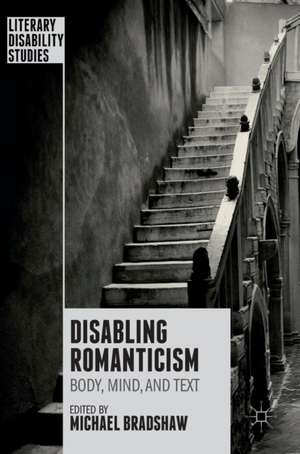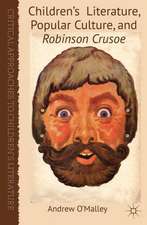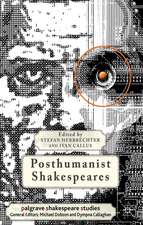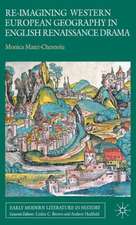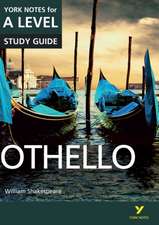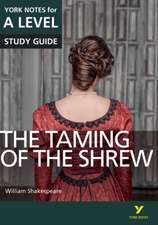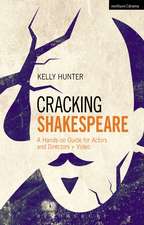Disabling Romanticism: Literary Disability Studies
Editat de Michael Bradshawen Limba Engleză Hardback – 23 iun 2016
Preț: 726.37 lei
Preț vechi: 885.82 lei
-18% Nou
Puncte Express: 1090
Preț estimativ în valută:
138.99€ • 145.48$ • 115.68£
138.99€ • 145.48$ • 115.68£
Carte tipărită la comandă
Livrare economică 31 martie-14 aprilie
Preluare comenzi: 021 569.72.76
Specificații
ISBN-13: 9781137460639
ISBN-10: 1137460636
Pagini: 225
Ilustrații: XV, 215 p.
Dimensiuni: 148 x 210 x 18 mm
Greutate: 0.41 kg
Ediția:1st ed. 2016
Editura: Palgrave Macmillan UK
Colecția Palgrave Macmillan
Seria Literary Disability Studies
Locul publicării:London, United Kingdom
ISBN-10: 1137460636
Pagini: 225
Ilustrații: XV, 215 p.
Dimensiuni: 148 x 210 x 18 mm
Greutate: 0.41 kg
Ediția:1st ed. 2016
Editura: Palgrave Macmillan UK
Colecția Palgrave Macmillan
Seria Literary Disability Studies
Locul publicării:London, United Kingdom
Cuprins
Foreword; Peter Kitson and Tom Shakespeare.- Acknowledgements.- Notes on Contributors.- 1. Introduction; Michael Bradshaw and Essaka Joshua.- 2. Picturesque Aesthetics: Theorising Deformity in the Romantic Era; Essaka Joshua.- 3. Disability, Sympathy, and Encounter in Wordsworth’s Lyrical Ballads (1798); Emily B. Stanback.- 4. ‘Psychological Curiosit[ies]’ from an ‘Intellectual Giant’: Coleridge, Disease, Disability, and Drugs; Corey Goergen.- 5. ‘In mental as in visual darkness lost’: Southey’s Songs for a Mad King'; David Chandler.- 6. Mary Robinson’s Paralysis and the Discourse of Disability; William D. Brewer.- 7. Blakean Wonder and the Unfallen Tharmas: Health, Wholeness, and Holarchy in The Four Zoas; Matt Lorenz.- 8. ‘An uneasy mind in an uneasy body’: Byron, Disability, Authorship, and Biography; Christine Kenyon Jones.- 9. Autistic Voice and Literary Architecture in Mary Shelley’s Frankenstein; Julia Miele Rodas.- 10. A Hundred Tongues: George Darley’s Stammer; Jeremy Davies.- Index.-
Recenzii
“I read Michael Bradshaw’s edited collection Disabling Romanticism: Body, Mind, and Text with great interest. … it has only nine articles, every one of them is substantive and useful.” (Studies in English Literature 1500-1900, Vol. 57 (4), 2017)
“It is also one of the first books devoted to disability studies and British Romanticism, which is surprising when one considers the wealth of material on this topic for scholars working in the late eighteenth and early nineteenth centuries. … the wide range of its essays show the importance of both physical and cognitive disability to British Romanticism. I hope this book will stimulate more sustained work on its topic, including monographs on Romanticism from the perspective of disability studies.” (Karen Bourrier, Review 19, nbol-19.org, 2017)
Notă biografică
Michael Bradshaw is Professor of English at Edge Hill University, UK. He has published extensively on Romanticism, including Keats, the Shelleys, The London Magazine, Romantic generations, and Romantic fragment poems; publications include Resurrection Songs: the Poetry of Thomas Lovell Beddoes (2001), and The Ashgate Research Companion to Thomas Lovell Beddoes (2007).
Textul de pe ultima copertă
This book investigates the presence of disability in British Romantic literature, as subject matter, as metaphorical theme, and as lived experience. It is the first collection of its kind, breaking new ground in re-interpreting key texts and providing a challenging overview of this emerging field. The collection offers both a critique of academic Romantic studies and an affirmation of the responsiveness of the Romantic canon to new stimuli. Authors discussed include William Blake, Lord Byron, Ann Batten Cristall, Samuel Taylor Coleridge, George Darley, Richard Payne Knight, William Gilpin, Mary Robinson, Mary Shelley, Robert Southey, and William Wordsworth.
